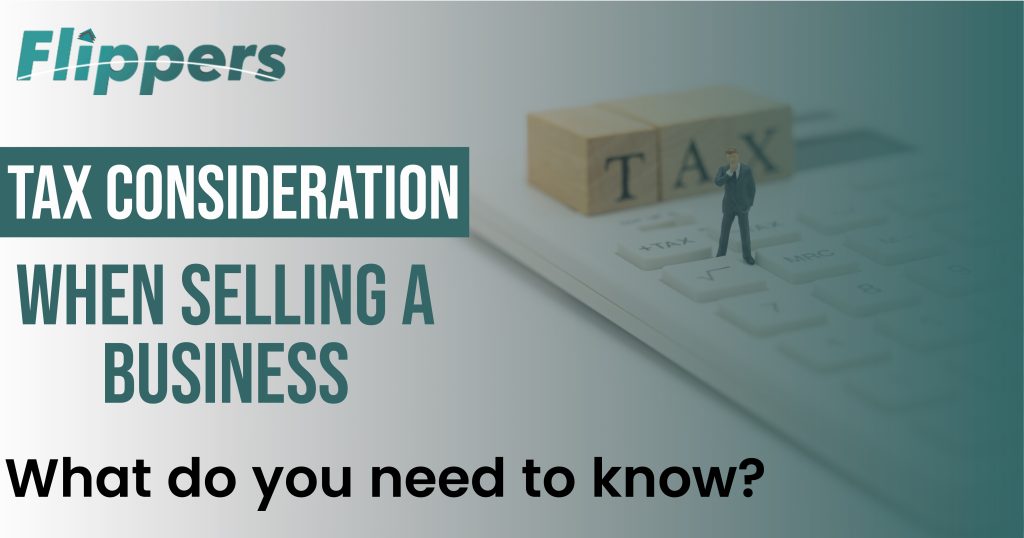Tax consideration when selling a business—what do you need to know?
Intro
The process of selling a business is thrilling, but it can be intimidating due to tax complications. Tax considerations are an important part of the process that is frequently disregarded, regardless of whether you are looking to profit from years of hard work or are just ready for a new adventure by selling the previous business and launching a new venture into a new industry. Your bottom line may be greatly impacted by the ramifications. It takes more than just fundamental understanding to navigate the tax landscape during a business transaction. If you intend to sell your business, Over time, knowing your possible tax obligations could save you hundreds or even millions of dollars. We can help you with everything from determining the variables affecting your tax liability to coming up with clever ways to cut those expenses!
Understanding the tax implications of selling a business
Every seller should be aware of the substantial tax ramifications of selling a business. There are a number of taxes associated with selling a business, chief among them being capital gains tax on the sale proceeds. Along with other variables, this rate may change depending on how long you’ve owned the company. It’s critical to evaluate all of the assets included in the sale when calculating your tax liability. These could include your brand’s goodwill, intellectual property, or tangible assets. Clarifying possible tax amounts is greatly aided by understanding these components. Depending on your location, industry, or sector, tax laws may impose varying obligations. The laws governing sales and other transactions vary from state to state. To properly negotiate this complicated landscape, it is crucial to speak with a tax expert who focuses on business sales. Specialists can guarantee adherence to pertinent provincial regulations and offer insights customized to your unique situation.
Factors that can affect your tax liability when selling a business
Several variables can significantly influence your tax liability when selling a business.
- The structure of your business
- Sale price (higher) typically means more taxes
- Debts or liabilities
- Local regulations and incentives
How to minimize taxes when selling a business
When selling a firm, it’s important to carefully consider the sale’s structure in order to minimize taxes. A more advantageous tax treatment results from selling the assets rather than the shares. When selling out your company, think about taking advantage of any industry-specific exclusions or reliefs that may be available. The government provides special benefits for several areas and industries, which may lower your total tax liability. To find out the most recent details regarding these offers and reliefs, you should verify with them. The time period for business sales is also very important. To stretch out your taxable income and lessen the effect on your tax rate, try to space out the transaction over several fiscal years. An in-depth evaluation of your company is also essential. In order to support your sale price and avoid any potential conflicts with tax authorities, make sure you appropriately value both tangible and intangible assets. In order to grow your firm in various markets or industries and to postpone some capital gains taxes, you should look into other options for reinvesting in another endeavor.
Tax planning strategies for business owners looking to sell their business
You can save a lot of money by being aware of the possible tax implications. Appropriately structuring the transaction is a good way to plan your taxes before your business sale. Instead of selling shares, which have advantageous tax rates, business owners could think about selling assets. Presale reorganization is also advantageous. To increase asset value and reduce overall taxes, this involves reorganizing or combining businesses. Keep abreast of any modifications to tax laws that may have an impact on the sale of your company. As you proceed with selling your company, being informed will help you make more calculated choices and achieve better financial results.
Important Documents and Records needed for tax purposes during a business sale
If you are preparing to sell your business, you should gather the right documents to manage tax implications. Here is a list of important documents you need to collect before selling your business.
- Financial statements from the last three years
- All Tax returns filed during that period of three years or business operations
- Asset Documentation
- Contracts and agreements related to any employees or vendors
- Records of previous business transactions with partners
Conclusion
The complicated procedure of tax ramifications when selling your prior business endeavor might occasionally reduce the profits you had hoped to make after years of commitment and diligence. While we oppose tax evasion, we do encourage you to steer clear of problems and pursue seamless transactions that satisfy both your personal objectives and state regulations for the sale of your firm. In this regard, it is best to obtain professional assistance as experts offer situation-specific information, provide piece of mind, and maximize tax-related outcomes during a selling process.
